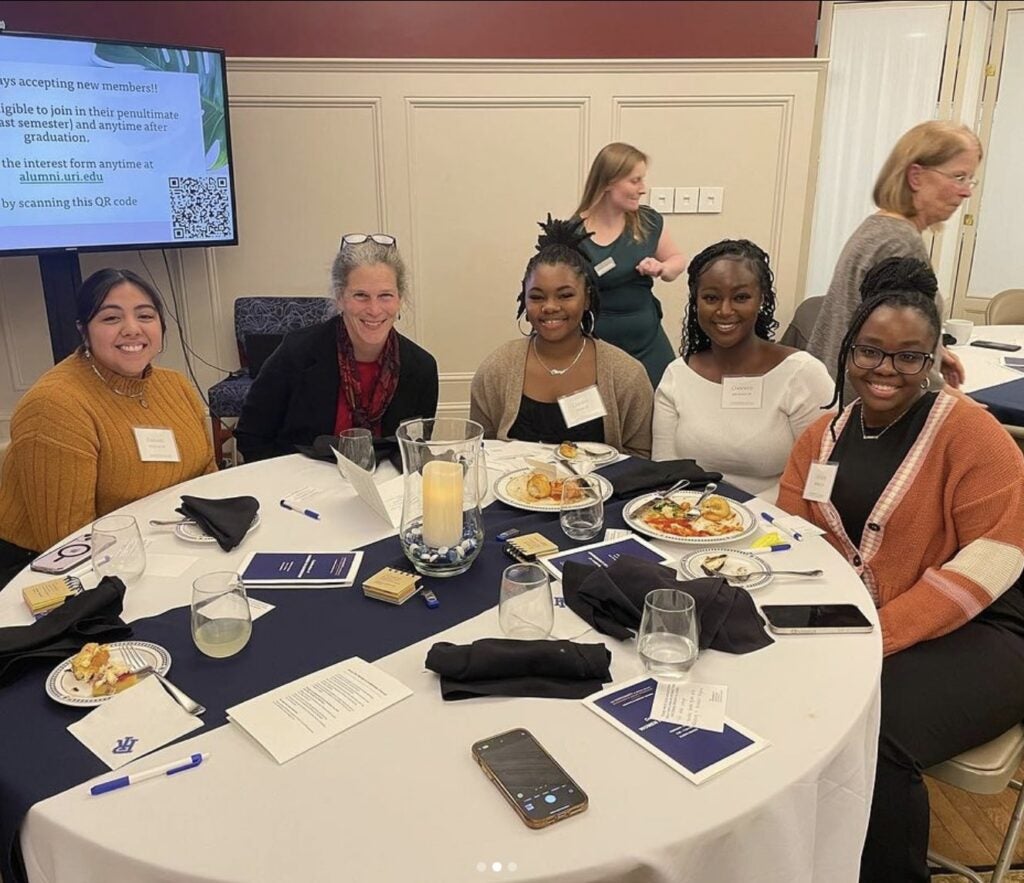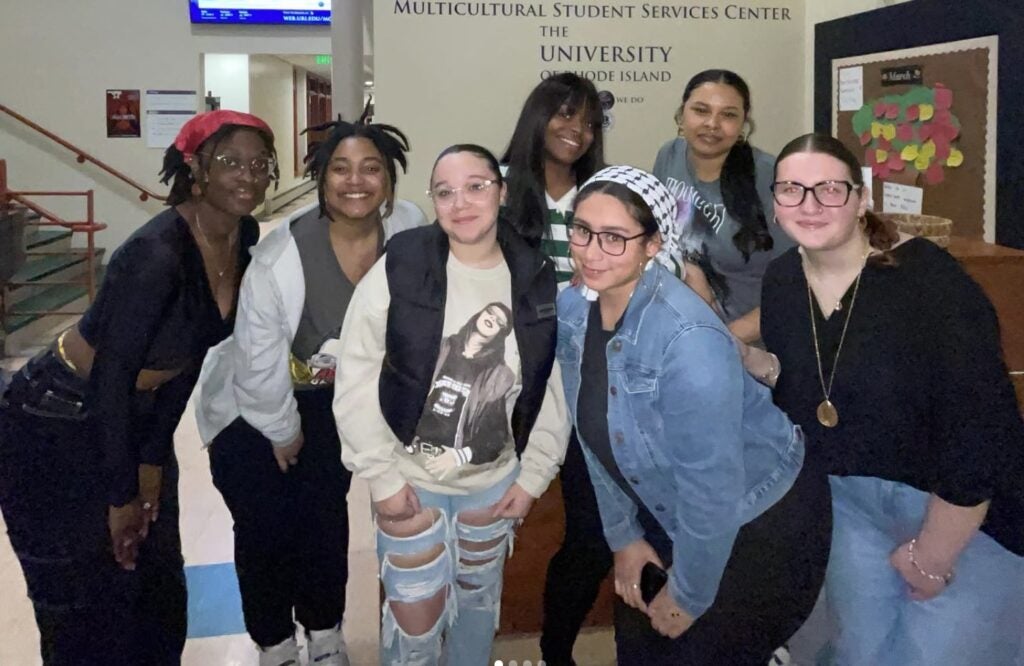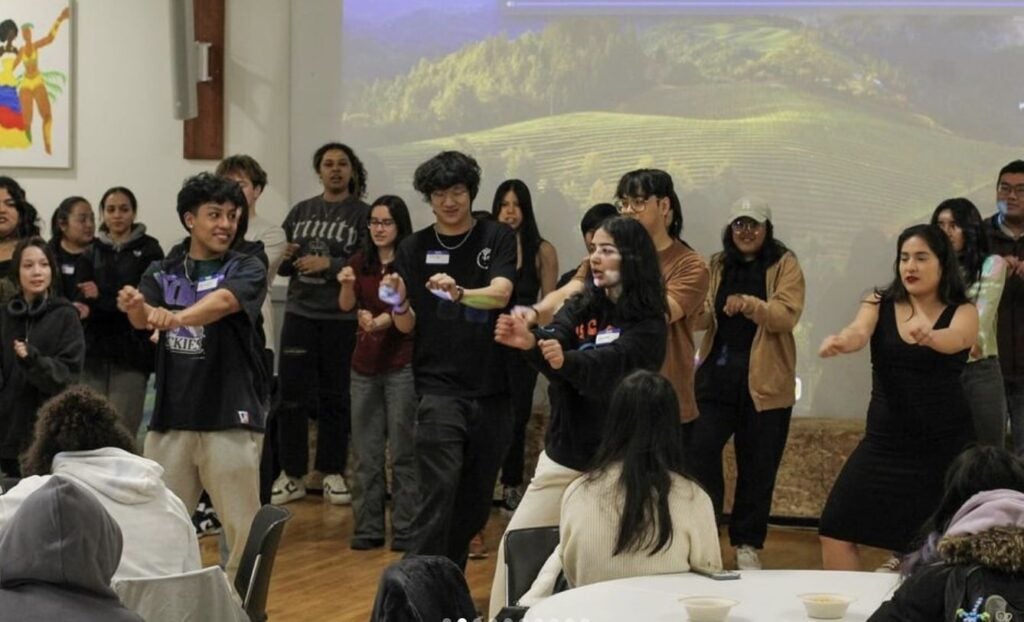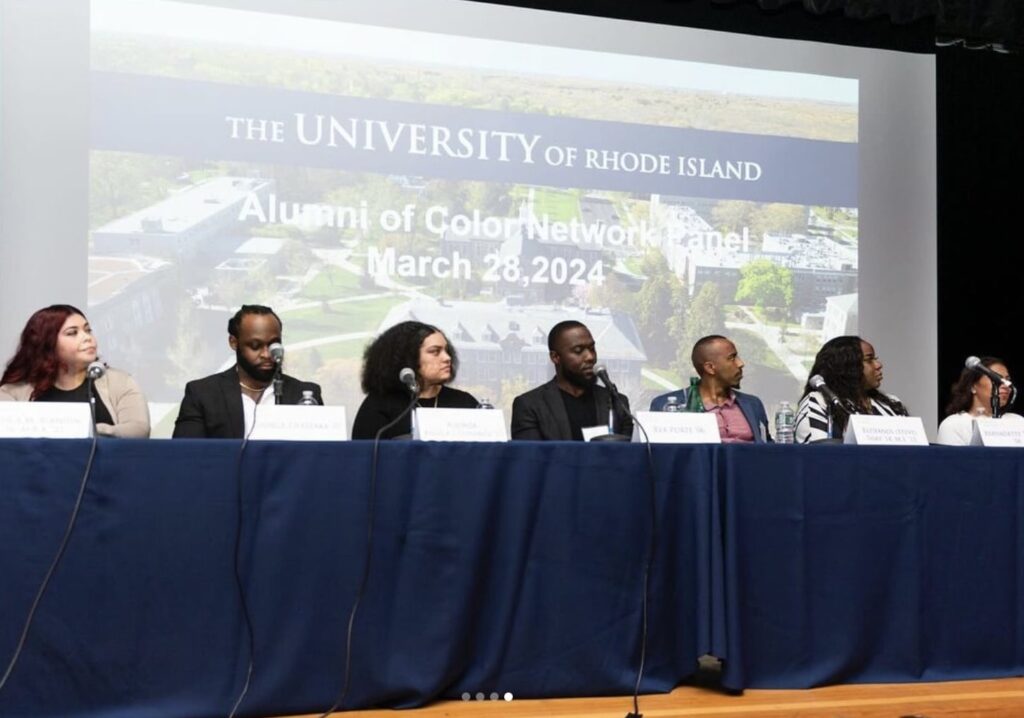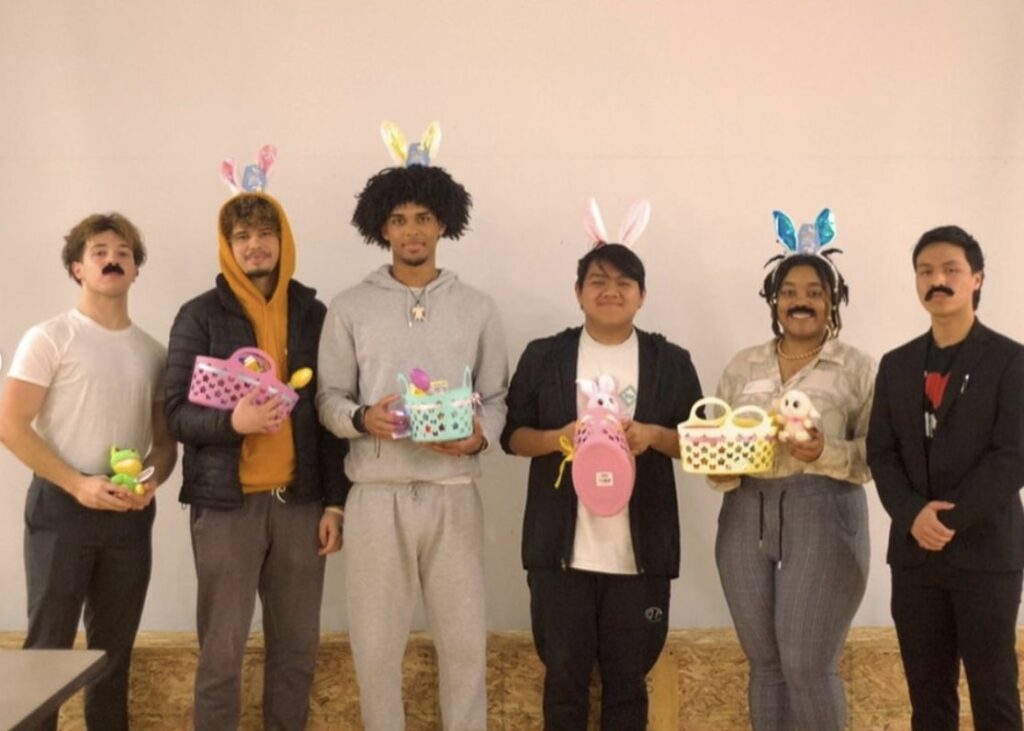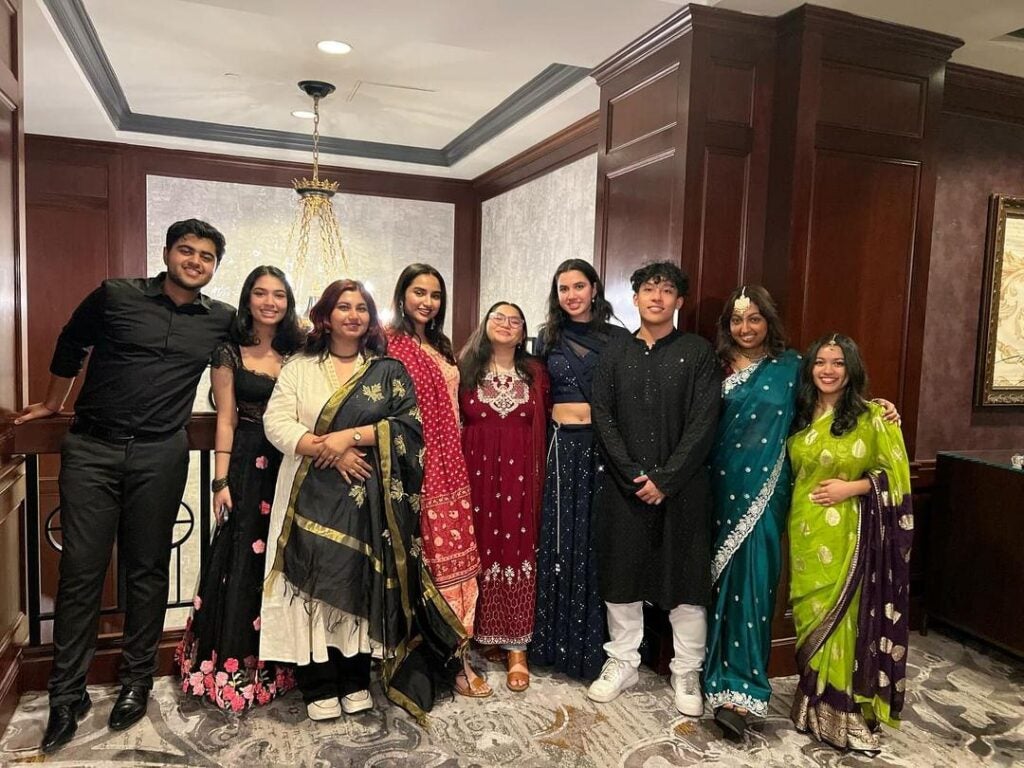About MSSC
The URI Multicultural Student Services Center serves students from historically marginalized communities, including but not limited to race, gender, ethnicity, national of origin, sexual orientation, and religious minority.
Mission
The Multicultural Student Services Center promotes access, equity and individual growth for traditionally underserved students. It aims to provide developmentally appropriate programs and building resources which connect and support the URI community in becoming just and culturally competent global citizens who inspire hope for the future.
Vision
We believe the vision of the URI Multicultural Student Services Center are grounded in the values upon which the theories and practices of intersectionality and multiculturalism are based. This foundation drives inclusive excellence, fostering equitable engagement and collaboration across diverse communities and perspectives.
History
The Multicultural Student Services Center, known as MSSC, began as the Afro-American Society in a Quonset hut on campus that was shared with Fine Arts. In 1971, the building was torn down and the Afro-American Society prepared to move into the Lee House at 31 Upper College Road. When it moved into the Lee House in 1973, the name of the organization changed to Uhuru SaSa, and the building was named the Uhuru SaSa House. The Student Life Office changed the name to Minority House in 1981, and in 1983, the Student Senate voted to change the name back to Uhuru SaSa. In February 1991, the building became the Multicultural Center. The Multicultural Student Services Center then moved to the old Theta Chi fraternity house at 14 Upper College Road in 1993.
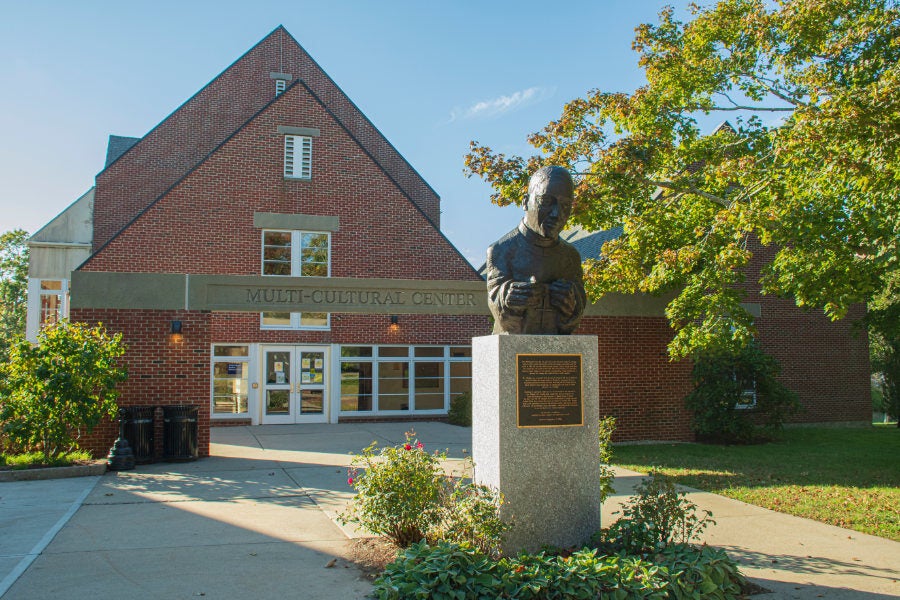
Plans for a new building to house the Multicultural Student Services Center at 74 Lower College Road (between the Human Resources Department and the Memorial Union) led to a groundbreaking ceremony on April 27, 1995. The new building was finished in 1998 and the opening celebrations were held in September of that year.
Values
Social Justice
Society can strive for fairness and justice by dismantling structural barriers that limit full participation and development for everyone. Through its advocacy for equitable learning environments, the MSSC supports access to higher education for underserved students. By providing opportunities to apply learning in real-life scenarios, we help students prepare for lifelong advocacy in their daily lives.
Learning
We believe that learning is most impactful when learners can systematically examine and challenge the assumptions underlying their knowledge in safe and collaborative environments. At the MSSC , we foster learning within a systematic framework of reciprocal expectations and responsibilities, where the learning process is shared collaboratively with others for maximum success for all.
Personal and Cultural Development
We believe that development is most effective when it is understood that authentic knowledge of society and culture begins with growth and maturation of the self, acquisition of life skills, and the search for meaning in individual and group experiences. We support the personal assessment of cultural awareness by students and encouraging students to grow at every level.
Standards of Excellence
We believe that our work, life, and play should model high expectations, ethical and moral standards, caring for self and others around us. By upholding these values, we aim to inspire and motivate others to embrace excellence, integrity, and compassion in all aspects of their endeavors, fostering a culture of mutual respect and collective responsibility for a better, interconnected world.

